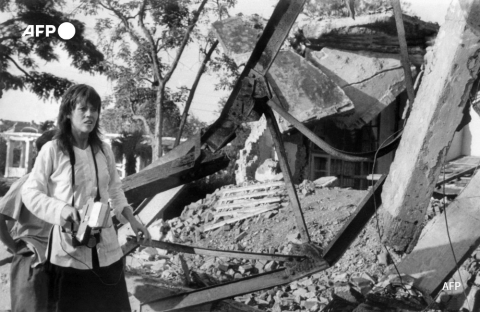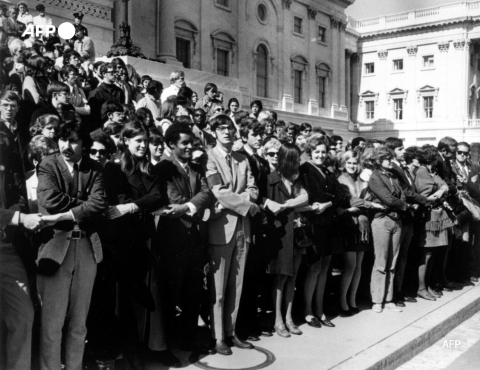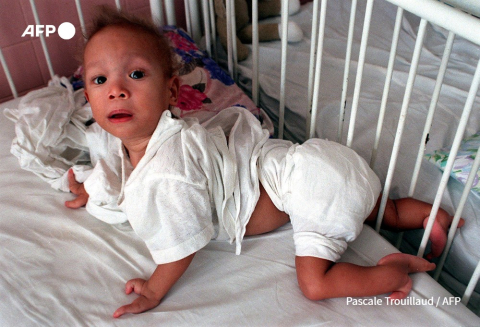How fighting in Vietnam changed the US

by William Ickes
North Vietnamese troops and Vietcong guerrillas captured Saigon in 1975, leaving the United States polarized with bitter citizens questioning the country's moral compass and their leaders' competence.
The fall of what is now Ho Chi Minh City on April 30 that year terminated US efforts to protect South Vietnamese leaders at a cost of roughly 1.5 million lives in all and more than $100 billion needed to fight poverty at home.
The war cleaved "a permanent divide in American society which is still seen today," wrote Michael Totten, who contributes to the publication World Affairs.
A programme aired by US public television network PBS said the war caused a great rift within American society, raising doubts about America's role in the world, its morality, and its priorities.
The United States still bears scars from the war, which cost an estimated $167 billion according to historian Harvard Sitikoff, fuelling "runaway double-digit inflation and a mounting federal debt that ravaged the American economy" and ate up funds needed for social development.
- More than 58,000 Americans killed -

Of the more than 1.6 million Americans who fought in the war, more than 58,000 were killed and more than 150,000 were wounded.
Many others suffered psychological damage, were rejected by a hostile population at home and swelled the ranks of the homeless.
Navy veteran Lee Thorn told AFP he believed the Post Traumatic Stress Disorder (PTSD) suffered by former soldiers could affect their children.
"I think it can go through generations," he said.
Sitikoff concluded that in general, "as never before, Americans after the Vietnam War neither respected nor trusted public institutions," a legacy the country also struggles with today.
Whether one belonged to the civil rights movement, the "counter-culture" or the armed forces, Vietnam left many doubting the their leadership.
Martin Luther King Jr. linked the war with the civil rights movement as early as March 1965, deploring that "millions of dollars can be spent every day to hold troops in South Vietnam and our country cannot protect the rights of Negroes in Selma," a flashpoint city in Alabama.
On the other side of the issue, former navy pilot and prisoner of war Jim Mulligan spoke for conservatives when he told AFP the United States should have fought an all-out war and left a protective force in South Vietnam.
"The military wins it and then the politicians screw it up," Mulligan said.
The notion of questioning the president took on a force rarely seen before and convinced Lyndon Johnson not to seek re-election in 1968.
His successor Richard Nixon resigned in August 1974 amid the Watergate political scandal, and the nation's highest office was changed for good.

- Half a million protest -
Small early anti-war protests swelled into giant rallies like the 1969 Moratorium march that drew up to a half-million people.
Terms like the "Vietnam syndrome" were coined to capture the nation's reticence to wage war, while the "credibility gap" described a crucial loss of trust in politicians.
The most reviled was former defense secretary Robert McNamara, who wrote in 1995: "We were wrong, terribly wrong. We owe it to future generations to explain why."
McNamara added that he had "grown sick at heart witnessing the cynicism and even contempt" with which Americans had come to view their institutions.
Returning from a trip to Vietnam in February 1968, trusted news anchorman Walter Cronkite said in a historic editorial: "We are mired in stalemate."
The change in attitudes had some positive effects notably the advancement of civil rights, a lower voting age, and a sharper focus on the environment and women's issues.

The civil rights and anti-war movements were closely linked because many US soldiers sent to Vietnam were black.
Parents wondered why their young sons could be drafted but had no voice in who would ultimately send them to war.
Nixon proposed lowering the voting age of 21 to 18 and the Bill sped through Congress, being adopted in March 1971 and ratified by states in record time.
Protestors also remained partially mobilised as the war wound down and focussed on the environment against a backdrop of the horrific effects of the defoliant Agent Orange in Vietnam.
The first Earth Day in April 1970 jump-started conservationist movements in the United States as women's issues also came to the fore.
